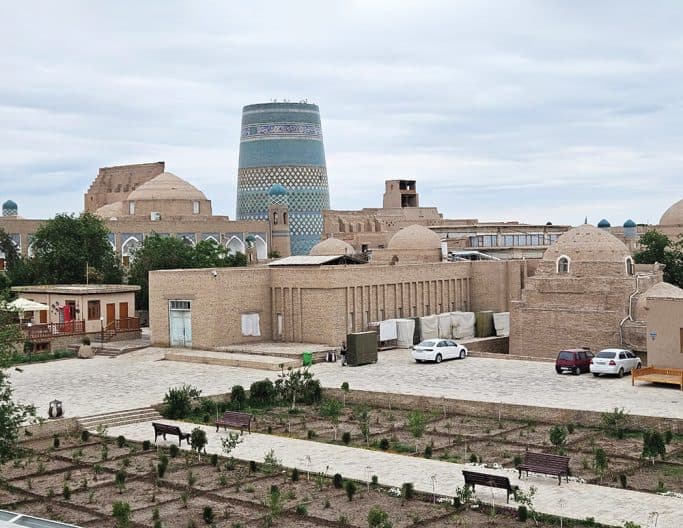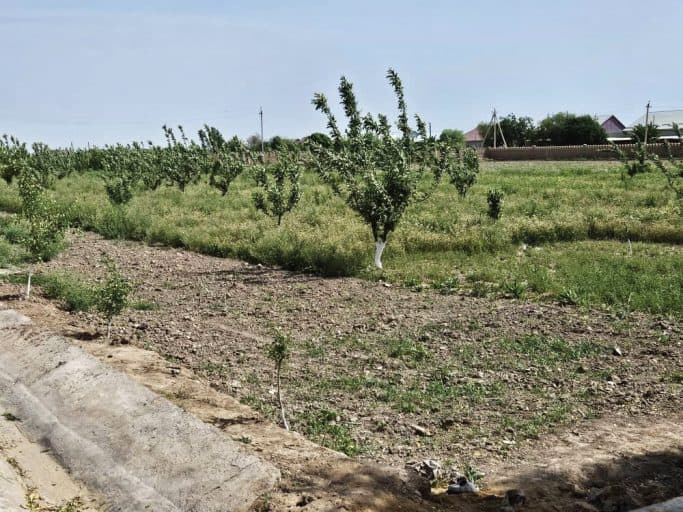An Impact for Generations
Business enterprises in Central Asia seek a long-term economic, social, and spiritual impact.
By Jay W. (name changed)
As my wife and I serve in Central Asia, our hope is that the business endeavors that we have helped to start are a true blessing to the community. We hope that ultimately, building authentic relationships through business ventures will be a bridge to sharing the hope of Jesus in this Muslim context.
For me, a big part of what drives me is creating legitimate roles for Christians to be able to live in Muslim communities as salt and light. We have seen both an information technology (IT) company and an educational center with language and IT courses succeed. So we would love to see those businesses expand into other areas where currently there are no Western workers living. I’ve also seen some projects that have not been as successful. We had to close down one school and another is not financially viable at this point, but we’re hoping it can become so.
We helped start three schools and one IT company along with its own sales and marketing arm. The initial school, established 14 years ago, and computer company, 10 years ago, have about 60 local employees between them and provide authentic relationships for the foreigners that want to live there. Through these long-term relationships, we’ve seen multiple families come to faith. These businesses have also provided a work environment where Christians and Muslims can work in partnership, add value together, and build respect and mutual understanding.




Around this ancient city along the Silk Road in Central Asia, German Mennonites lived in peace with their neighbors from 1883 to 1934 and blessed the local community with new agricultural techniques, craftsmanship, and technological development. The Mennonites who lived here left a legacy of blessing that continues to be remembered. Photos courtesy of author
Our focus right now is an area of Central Asia where there are more than 10 million people and no Western workers currently living there. There are four main cities, and we would love to see additional IT offices and educational centers started in each of them. We chose the initial city because it has a strong university that is graduating about a thousand IT students per year who have some job potential, and opportunities for local projects, but it’s with a much lower salary. The best graduates often leave and move to the capital, where there are more job opportunities, or they leave the country.
We would like to see IT offices where these top graduates can work in their community, be part of their family relationships, work alongside Christians, not to in any way push our faith, but be able to share naturally what God has done in our lives to be able to pray for people as there are needs around us.
We really want to be a blessing holistically to the community: providing jobs, providing education, and paying taxes. In our first location the school and the IT business pay 1% of all of the taxes for that region, and pay enough into the pension fund for more than a hundred retirees to receive their pension. We view this as a blessing to the community and it is something we’re glad to do. This is an unusual perspective on taxes among the local community and among international workers.
We want to be fully legitimate, making business decisions based on how any other business would make those decisions. We also want to be structured to be financially profitable, providing value to clients and good wages and benefits to employees. There are multiple cities in Central Asia where there’s an opportunity to live out this vision. I am particularly excited about providing a good salary to other workers from the Global South, who can support themselves after they have finished language study and are in full-time work roles.
We’re envisioning at least four additional IT offices, and four additional educational centers teaching English and IT. The hope is to take some of the profits from the IT business and invest them through grants into the educational centers to provide opportunities for more students as well. The first educational center is a neat example. Most of our team leaders attended the educational center that we had started when they were younger. There’s some synergy in the educational center preparing future IT workers.
We want to be fully legitimate and structured to be financially profitable.
Starting a new IT business requires at least one entrepreneur, one strong software engineer, and someone to lead the human resources and spiritual impact side. These three people, working together, can start a new location. This is also true for the educational centers, with at least one strong foreign teacher, one leader, and a person focused on spiritual impact and human resources. Under this model, we envision six families or foreign workers collaborating to start a school and a business in each location. The biggest limitation to this vision is having the right people join. We do, however, have a ready supply of local partners to work with us.
When new people join our team, we often talk about how to be effective and have deep relationships through which we can share. Three components are essential. People joining need to be spiritually mature and able to rely on God for strength in difficult circumstances. Secondly, they should really invest in learning the language and culture of this context, which may mean taking the whole first year or two before getting into an employment role. Lastly, people need to have an authentic reason for being present—to be a blessing—and the working role provides that. We encourage people to move to the regions where there are less existing resources. It takes people who are fairly hardy and flexible.
Our business leaders partner closely with other long-term international workers to support new people. We partner with what we call a Launch Team, that helps people through the first two years of language and culture learning, logistics, finding housing, navigating the country or town, and providing member care. Most people are assigned a mentor. Sometime in the second year, they will probably transition to working half time. In their work role, they would be supervised by the business leadership structure.
We know that fellowship and spending time together as believers is really important for discipleship and growth. International workers typically meet every week for worship, Bible study, and time to pray for one another. And we encourage local believers to do the same among themselves. This allows local believers to express their faith fully in their culture, and avoids the concerns by neighbors and the government that would arise from a mixed gathering.
As we expand into these four new cities, there are opportunities for skilled professionals to join this vision in a large variety of roles, especially for software developers, experienced business people, and language teachers. We also provide up to five college internship opportunities each summer. There are also opportunities for US companies to join as clients, working with an international team.
We pray that this business expansion will plant the seeds of faith and genuine community blessing for generations to come.
Jay is a mission worker, businessman, consultant, and Launch Team leader serving in Central Asia.
